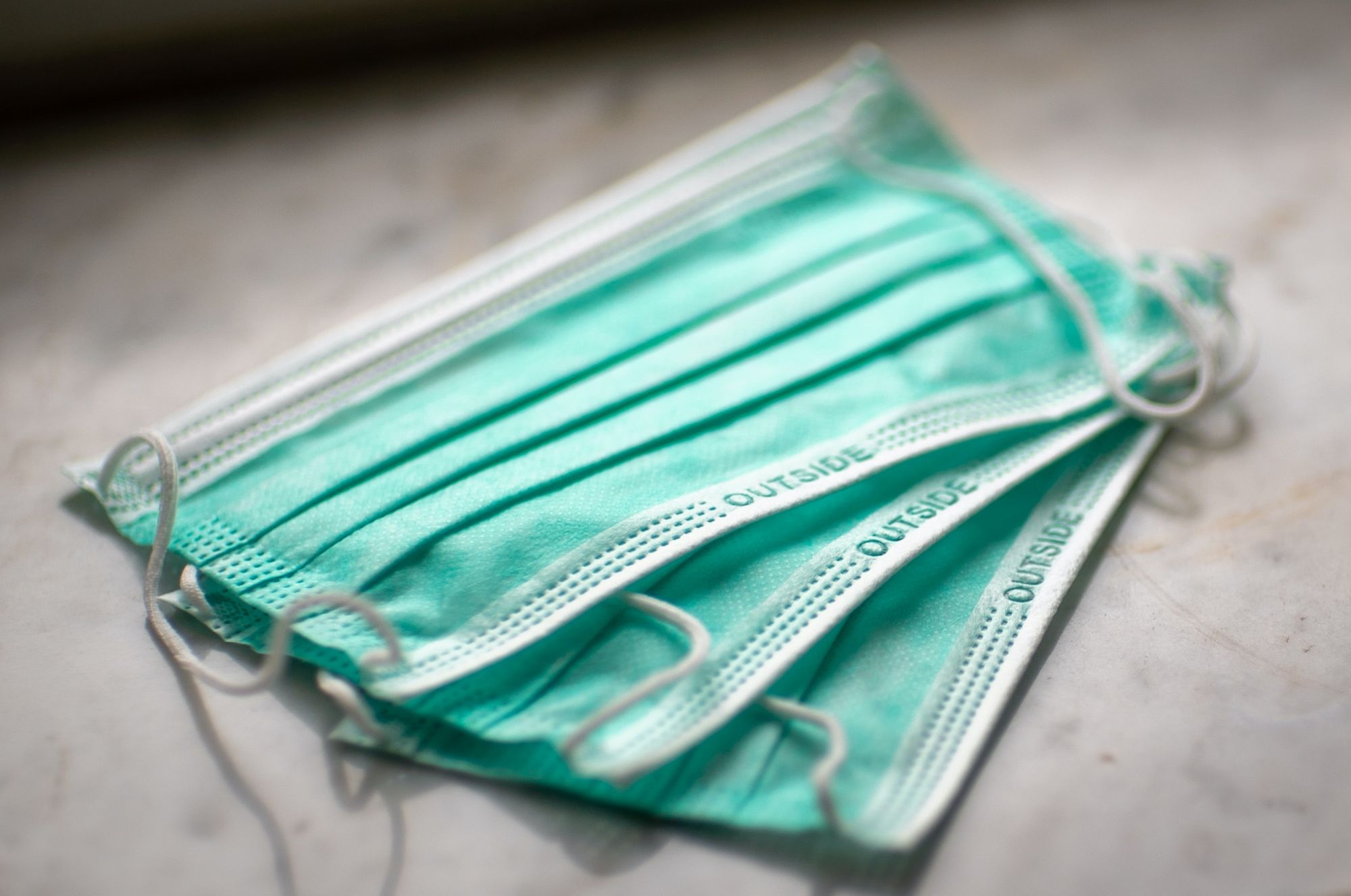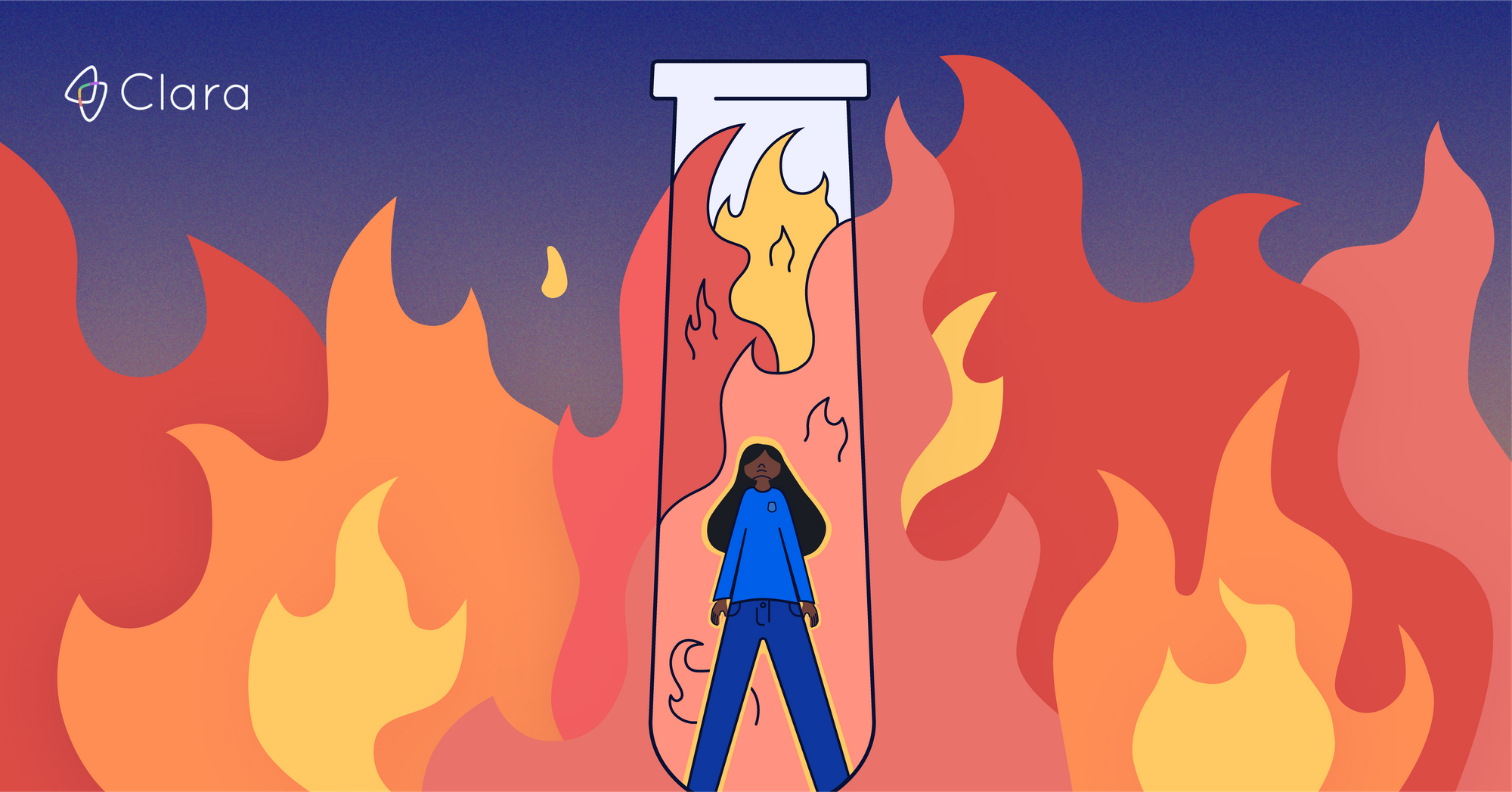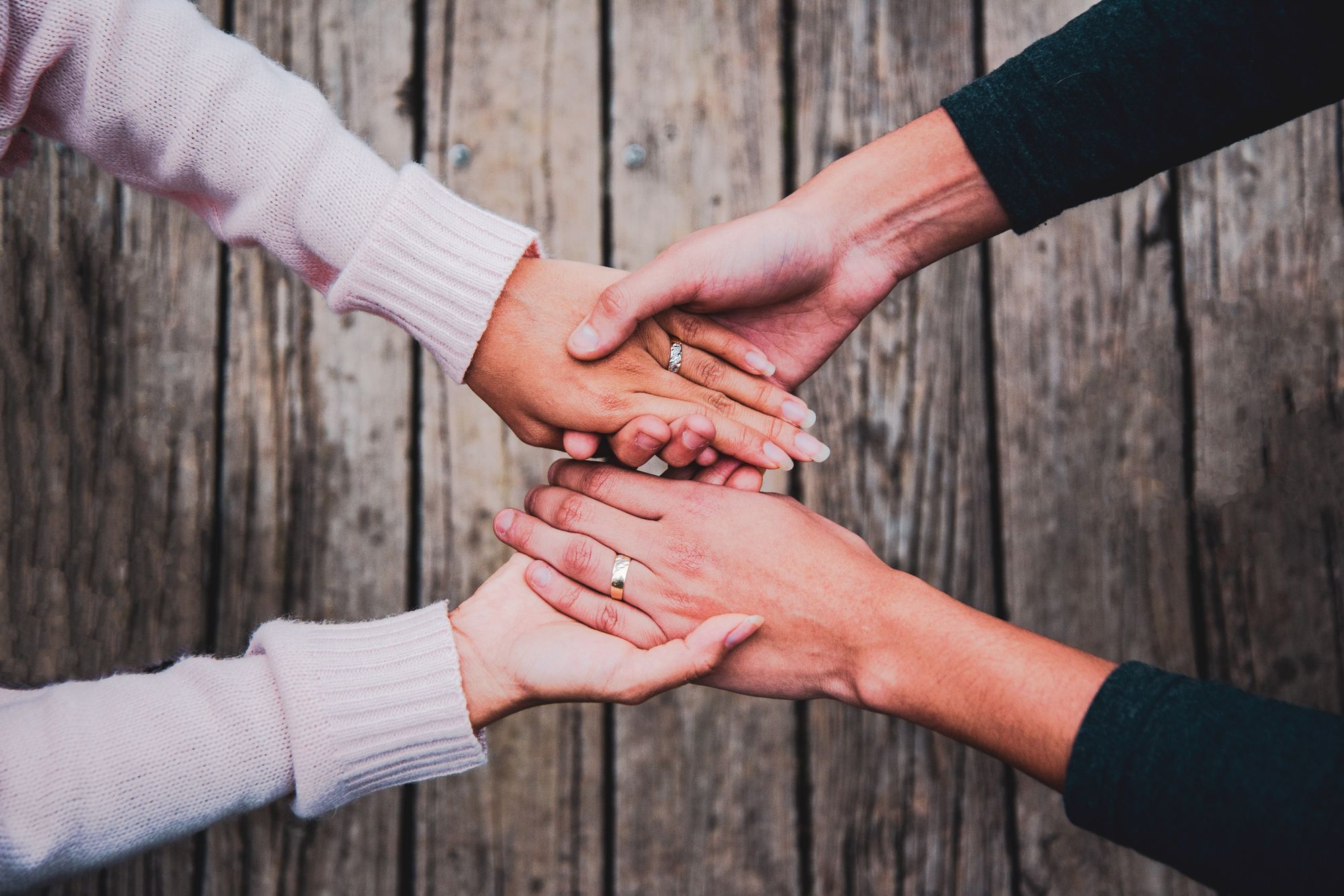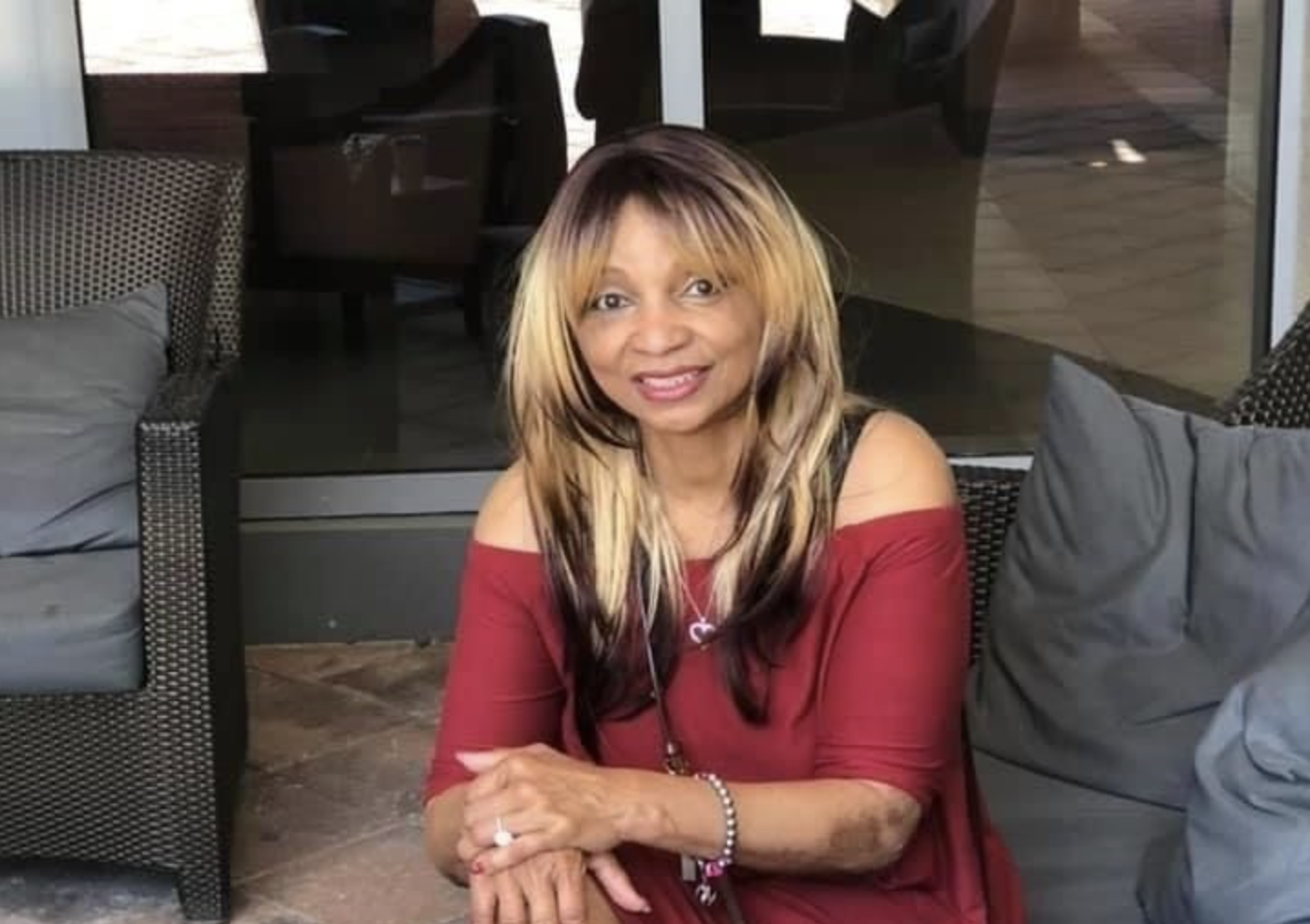Falling through the healthcare cracks
From an early age, Timothy knew first-hand that even the very young could be afflicted with serious health issues. His best childhood friend was born with juvenile spinal muscular dystrophy and wasn’t expected to live past age nine. Timothy himself would later struggle with IBD and celiac disease in his 20’s. And at the height of a global pandemic, as an immunocompromised individual, 31-year-old Timothy found himself in the grips of COVID-19, a virus that was primarily touted as a danger to the elderly. Here, Timothy speaks candidly with Clara Health about his ordeal.
“In mid-March, we weren't hearing that people were surviving, and the people who were surviving were not necessarily higher risk people. I thought that this was going to kill me.”
Long before his battle with COVID-19 began, Timothy routinely had to fight with insurance companies and doctors to get proper medical treatment for his chronic conditions. It all began in September of 2015, when he went to his doctor for what he thought was IBS.
“I had an insurance policy that wouldn't allow me to see a specialist without a referral. And my doctor point-blank said to me, ‘I’m not going to send you to see a GI specialist because you have diarrhea.”
It wasn’t until June of 2017 that Timothy successfully got in to see a doctor who promptly diagnosed him with ulcerative colitis and celiac disease. Even with the clear diagnosis, Timothy explains that he constantly had to advocate for himself:
“I've fallen between the cracks in so many way. For example, I once arrived at the doctor's half an hour early. Half an hour after my appointment was supposed to begin, a medical assistant came out and said, ‘I'm so sorry, but you were not digitally signed in so the doctor has left the building. You will not be seen today. When can you come back?’ It’s just devastating.”
When you’re immunocompromised, the details of your care can be a matter of life or death. Particularly with a pandemic that’s still so new that the details are constantly changing. Indisputably, immunocompromised people fall into the high-risk category for contracting and becoming severely ill from the disease. The fear felt by this community and their loved ones is warranted and real.
"Am I staying or am I going?"
On March 12th, Timothy’s mother arrived to pay him a visit for his upcoming birthday, just as he developed a dry cough. Prior to her arrival, there’d been a lot of indecision around whether the visit should happen in the first place, but she came. By the 15th, the day that his mother was due to leave, he was coughing constantly and had a full-body fever. Timothy recalls that he and his mom never voiced what they were both thinking. But when saying their goodbyes, both mother and son tearfully wondered if it would be for the last time.
“I texted my two friends who are ER doctors. I emailed NYU and Mount Sinai. Every single piece of information that is available advised strongly against going to an urgent care center.” Timothy remembers, “And that part is what’s so scary for immunocompromised people; this new directive contradicts our usual protocol. When something changes in our bodies, we go in because it could be nothing, or it could be a drastic complication of a condition.”
At 2:00 AM on the morning of the 16th, Timothy lay alone in his home, feeling the virus progress as he tried to stay calm and breath through it. He calls it the scariest moment of his life and recalls grabbing a piece of smoky quartz, clinging to his faith in its purported healing powers, to place against his throat and lungs.
“I just focused on creating clean, healthy oxygenating breaths going to parts of my body that felt pain and releasing toxins. I called out my grandfather who is no longer with us, and I called out to my best friend who’d just passed the year before, and I said, ‘all right guys, am I staying or am I going. Whatever the plan, let's get through this.’” Timothy remembers an overwhelming sense of calm and peace coming over him as he finally fell asleep. The next morning, he awoke fever free.
Remembering lost souls
At the time of Timothy’s illness, as it was still difficult to attain COVID tests, a friend of his in NYU’s doctorate program was able to order a test for him. Timothy visited the testing site on Tuesday the 17th. Appointments were made available to anyone high-risk exhibiting symptoms. This was also before face masks became mandatory or the norm. In contrast to much of his experience with hospitals and healthcare workers, Timothy did not fall through the cracks this time.
“I went in and everyone was really lovely. I expected the hospital staff to be fatigued, stressed. I felt so grateful to everyone for working through this crisis. Every single person I encountered in that testing site, men and women and anything in between, was just so kind and so patient."
Having tested positive for antibodies, Timothy spoke to us about notions of access and privilege when it comes to testing, and to the leverage and responsibility that he and other COVID-survivors have.
“There are a lot of stories about people who haven't survived because they weren’t able to get tested at all. Yet, there are people who are getting tested more than once. I was given two tests, and that's really hard for me to swallow. On my birthday I had a moment of silence and made a toast to all of those people. Just holding space for all those people. I want to be a part of making sure that they're not lost and forgotten souls.”
Hope for the future
In our discussion with Timothy, we also talked about blood plasma donation and participation in clinical trials. There is currently a drastic need for convalescent blood plasma. Anyone who’s had COVID-19 and recovered from it now has antibodies in their blood that can help treat other severely ill patients through transfusion. The blood plasma donation process is simple, and isn’t any more invasive than a regular blood donation. As an eligible participant willing to do his part to help, Timothy also sees this as an opportunity to address inequalities within the healthcare system.
The good news is that volunteering in clinical trials often provides access to top-quality, innovative, investigational treatments at no cost to the participant. Some studies may even offer a stipend or some other form of financial incentive. World Without Covid, powered by Clara Health, currently lists over 1000 clinical trials available to anyone who is COVID-positive, COVID-recovered, or never exposed to the virus at all. They also connect to blood plasma donation centers. As COVID-19 effects every individual on this earth in a multitude of ways—whether you’re immunocompromised or relatively healthy, got sick and survived, have lost a loved one, lost a job, or are simply waiting to see how this will all pan out in the end—we can effectively change the outcome by sharing our individual stories, by social distancing, by appreciating our front-line defenders, by calling out holes in our system that needs fixing, by honoring victims, by volunteering, and by collectively doing everything in our power to make sure COVID can’t win.






